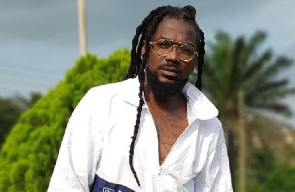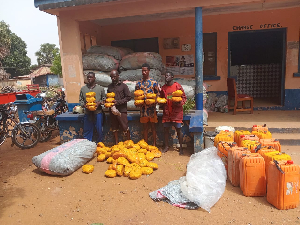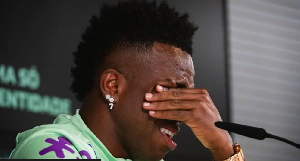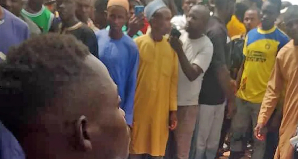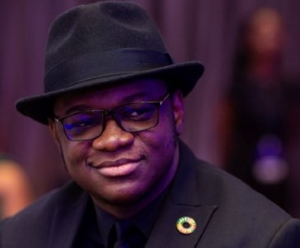Mr William Nsuiban Gmayi, Head of Communications, Ghana Museums and Monuments Board, has called on Ghanaians to be proud of and interested in managing and conserving local heritage sites.
He said the management and conservation of these sites were a shared responsibility and that everyone had to be interested in how the national heritage held memories and evidence of the Ghanaian culture and civilization.
“There are specific institutions which have been assigned to maintain these monuments and sites but the citizenry has a role to play.
Heritage is constructed and reconstructed on a daily basis and once we are able to build them they translate into who we are as Ghanaians.”
Mr Nsuiban Gmayi, whose is also a Museums Administration and Heritage Management Practitioner, spoke to the GNA on the backdrop of the celebration of this year’s International Day for Monuments and Sites.
He said monuments and sites had complex histories and a story to tell which were not only limited to the current generation but to future generations, and if not preserved it would be very difficult for the future generation to appreciate them.
He said the celebration of the day was proposed by the International Council on Monuments and Sites (ICOMOS) at a conference in Tunisia on April 18, 1982 and approved by the 22nd General Assembly of UNESCO in 1983 and it was observed around the world with various types of activities, including visits to monuments and heritage sites, conferences, round tables and newspaper articles.
The day, also known as the World Heritage Day, is aimed at promoting awareness about the diversity of cultural heritage of humanity, their vulnerability and the efforts required for their protection and conservation.
“It is to bring global attention to the need to conserve monuments and sites as our cultural heritage and to celebrate the diversity of this heritage.”
Mr Nsuiban Gmayi said each year, on this occasion, ICOMOS proposed a theme for activities to be organised by its members, National and International Scientific Committees, partners, and anyone who wants to join in marking the Day.
The theme for this year, “Complex past: Diverse futures”, is to afford countries the opportunity to reflect on, reinterpret, and re-examine existing narratives, to come together to share their experiences – of course in compliance with instructions from local and national authorities so as to ensure the safety of sites during this period of COVID-19.”
According to ICOMOS, conservation of cultural heritage requires critical examination of the past, as much as its practice demands provision for the future.
Debates on the omission and erasure of certain narratives, and the privileging of particular stories over others, have come to a head in recent years. Addressing contested histories hence involves complex conversations, avoiding biased views and interpretations of the past.
“The International Day for Monuments and Sites 2021 draws its inspiration from the cross-cutting discourse hosted by ICOMOS initiatives, including but not limited to the inaugural ‘Diversify/Decolonise Heritage!’ Workshop (launched in July 2020), various symposia dedicated to the themes of ‘Shared Cultures, Shared Heritage, Shared Responsibility’, workshops on Human Rights and Heritage Management, the webinars addressing ‘Indigenous Peoples and World Heritage’ and ‘People + Peace: The Role of Cultural Heritage in Building a More Just and Peaceful World Through Education, Diversity and Community Inclusion’ as examples of the work carried out by ICOMOS Committees and Working Groups on these important issues.”
“The International Day for Monuments and Sites 2021 presents an opportunity to provide an open platform for wide involvement and participation.”
According to Mr Nsuiban Gmayi, every country had a national committe of ICOMOS which is aimed at the promotion, conservation, protection and rehabilitation of monuments and sites which are of significance to the state. ICOMOS Ghana therefore should be able to promote the conservation of the sites and what ever rehabilitation needed to be done need to be championed.
He said, as it stands now Ghana now, had not got a national committee which was membership based with annual subscription. Since Ghana failed to renew the membership, has automatically lapsed.
He said because the committee was not in existence, the GMMB played a critical role in the celebration, and they did this by speaking to some of the issues that resonated with the theme and celebrated it on other media platforms.
“We also raise awareness on the need for conserving and what heritage means to us. Because heritage does not exist in a vacuum but tired to the people who live around them, and we need to preserve them so that the memories live on.”
He noted that the” GMMB in it’s own way has been maintaining the monuments and sites for all these while and based on this they only join the global community in the concept of promoting and preserving the sites in the interest of posterity.
“They have complex histories and a story to tell which is not only limited to the current generation but to the future generations. So of we do not preserve them, it would be difficult for the future generation to appreciate them.”
On the issue of promoting domestic tourism, Mr Nsuiban Gmayi, noted that domestic tourism was the way to go.
“We have seen how the sector has been affected by the COVID-19 and this is the time to make it attractive for locals and not build all our markets on international arrivals. We should be interested in promoting and maintaining our tourist sites in order to attract the local people first.”
He wished Ghanaians a happy international Day for Monuments and Sites and entreated them to take a little time off their schedule to visited these heritage sites which had so much to do and translate into” who we were as Ghanaians.”
”You can also visit the website of the GMMB at ‘www.gmmb.gov.gh’ for more information.”
Business News of Sunday, 18 April 2021
Source: newsghana.com.gh
Ghanaians must be more interested in our heritage sites - GMMB official
Entertainment
